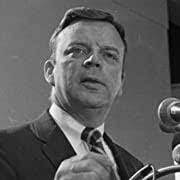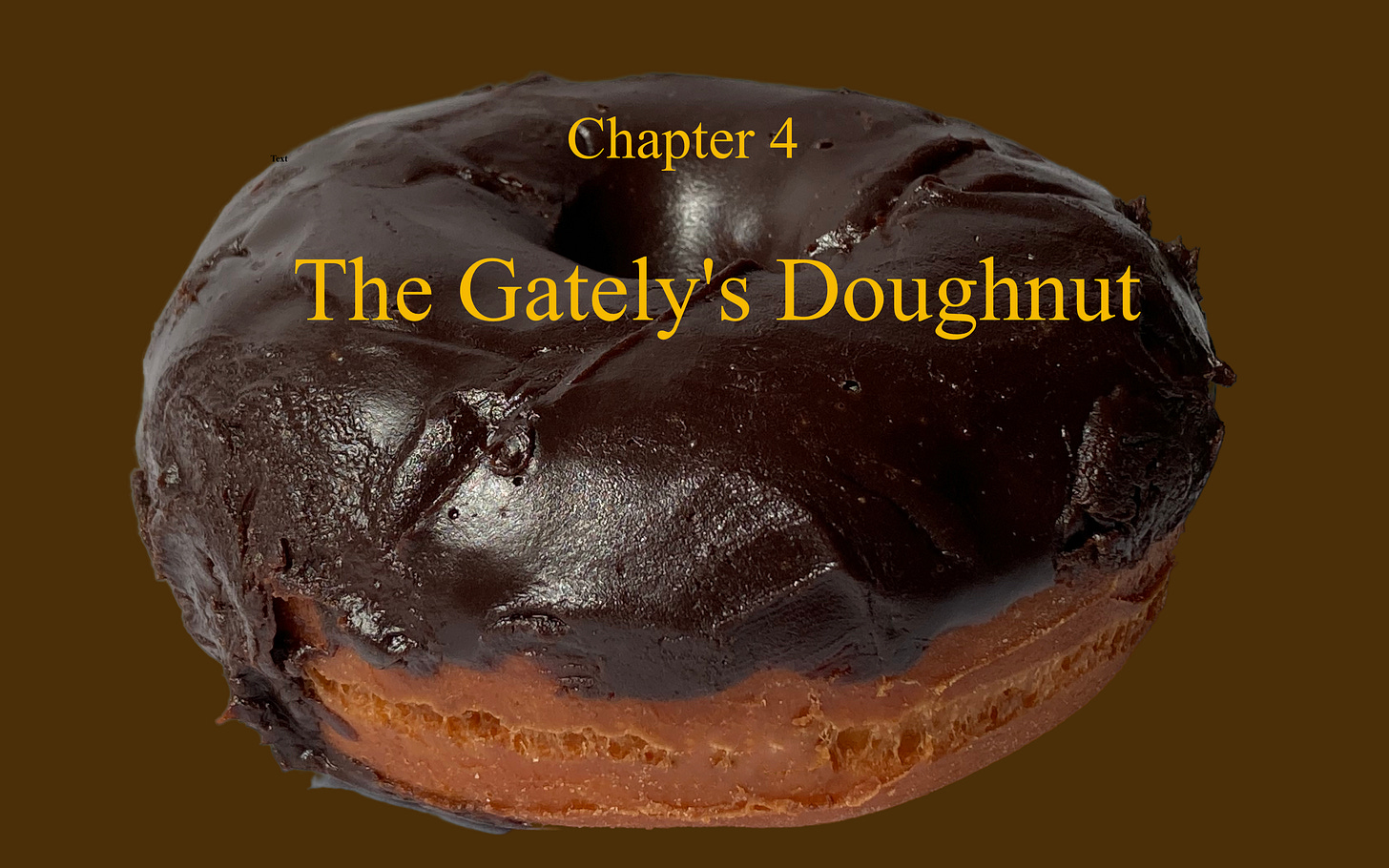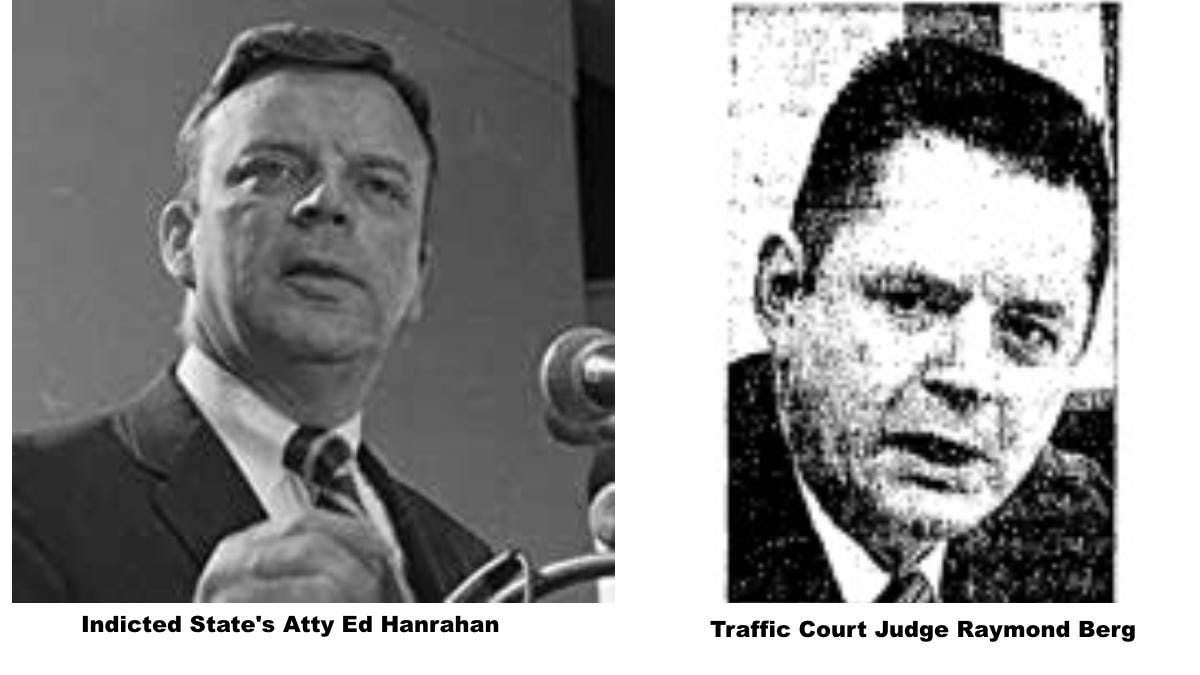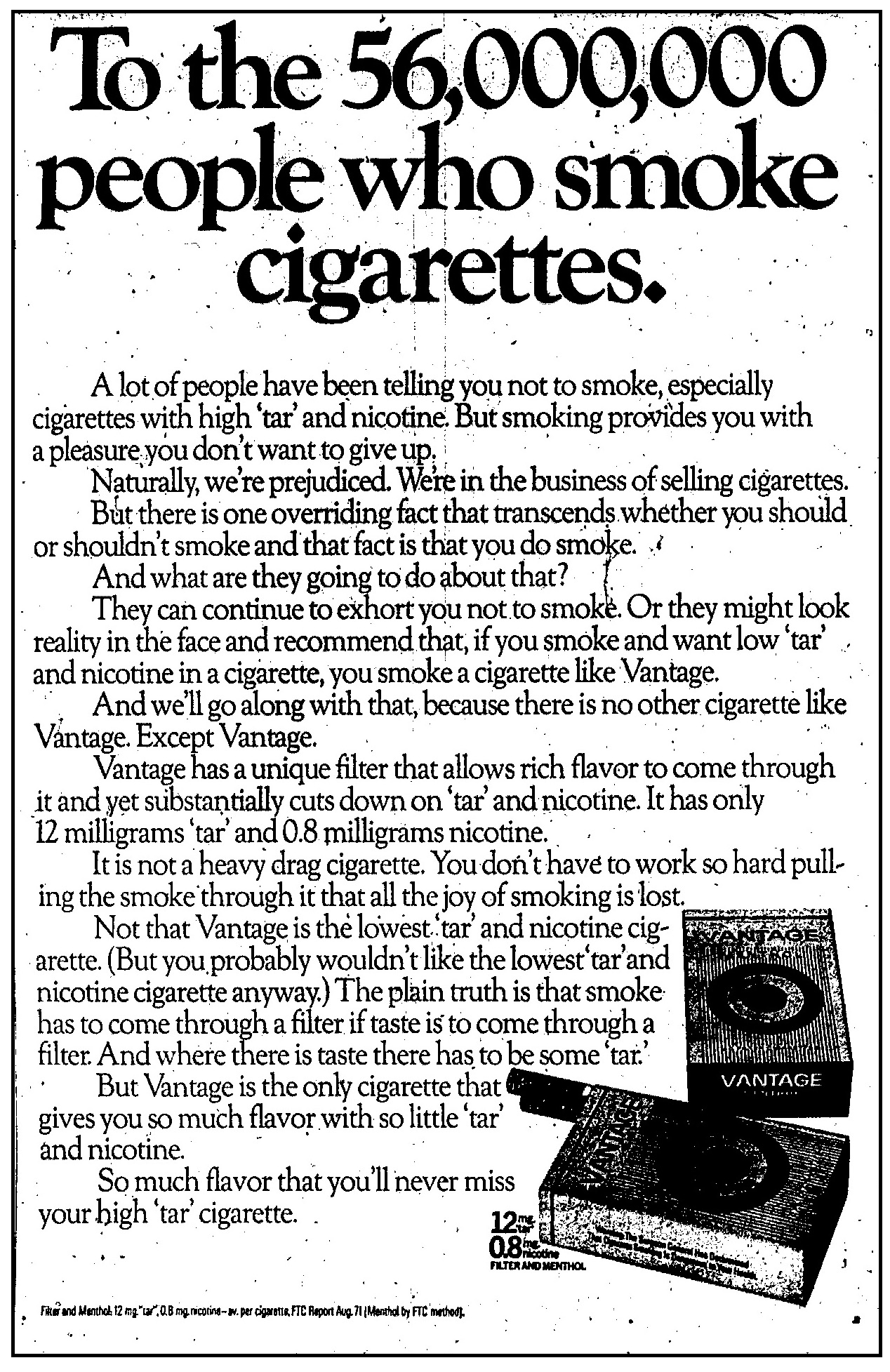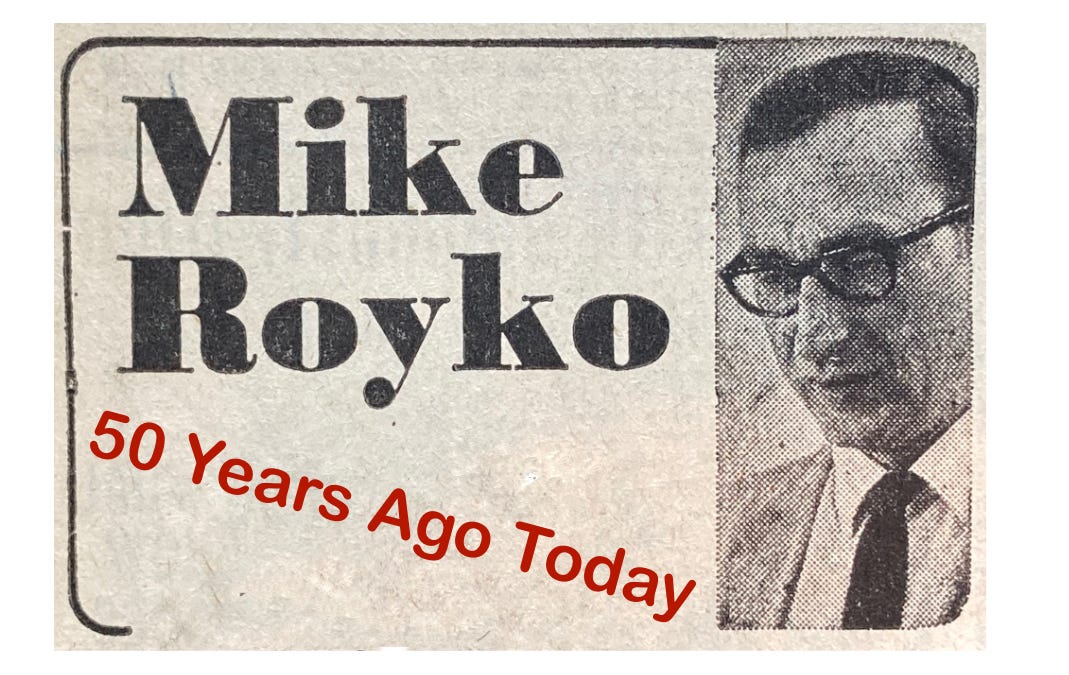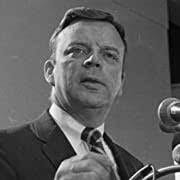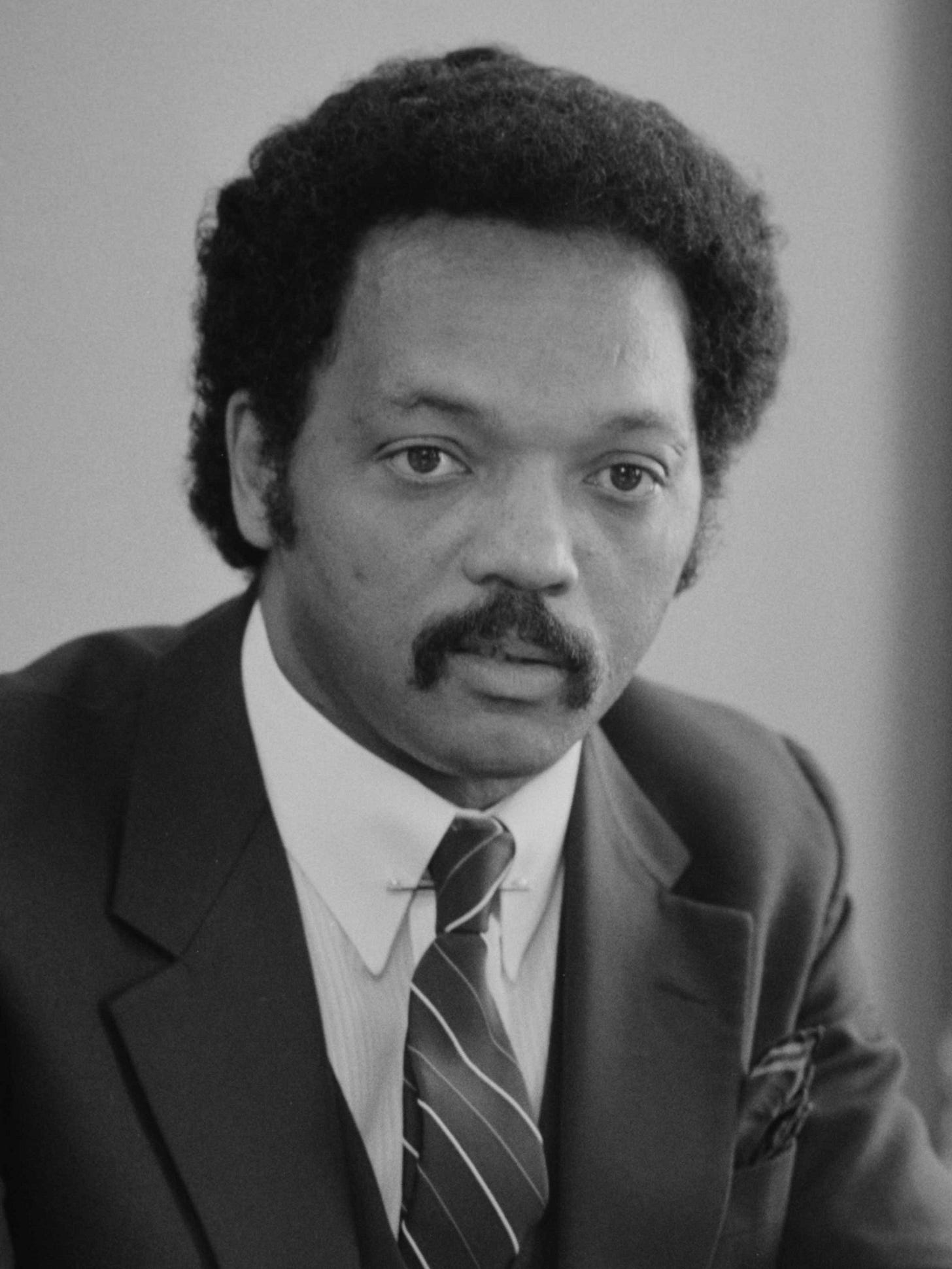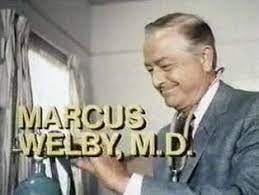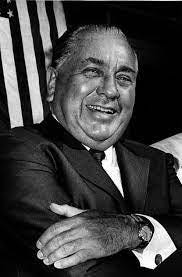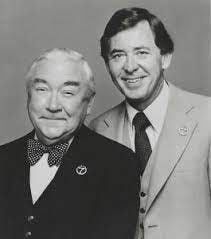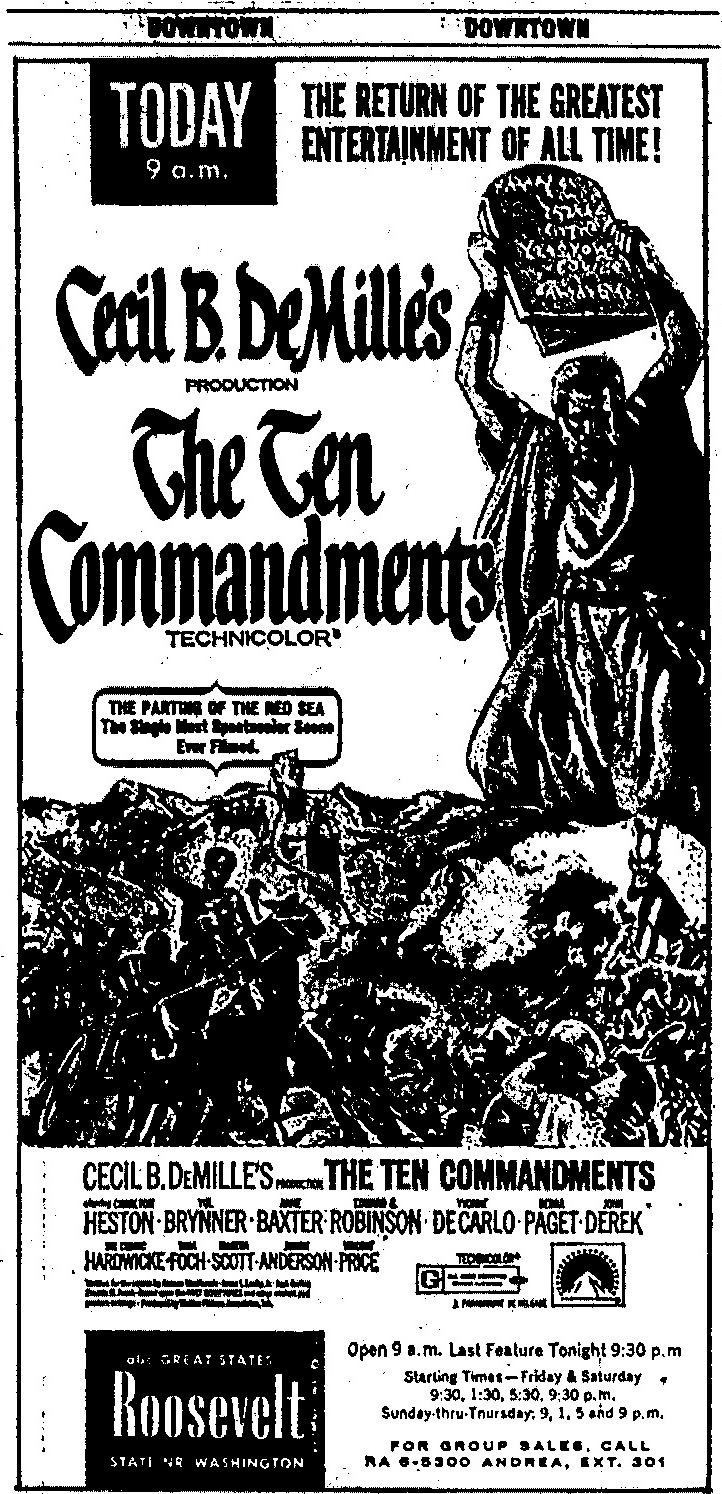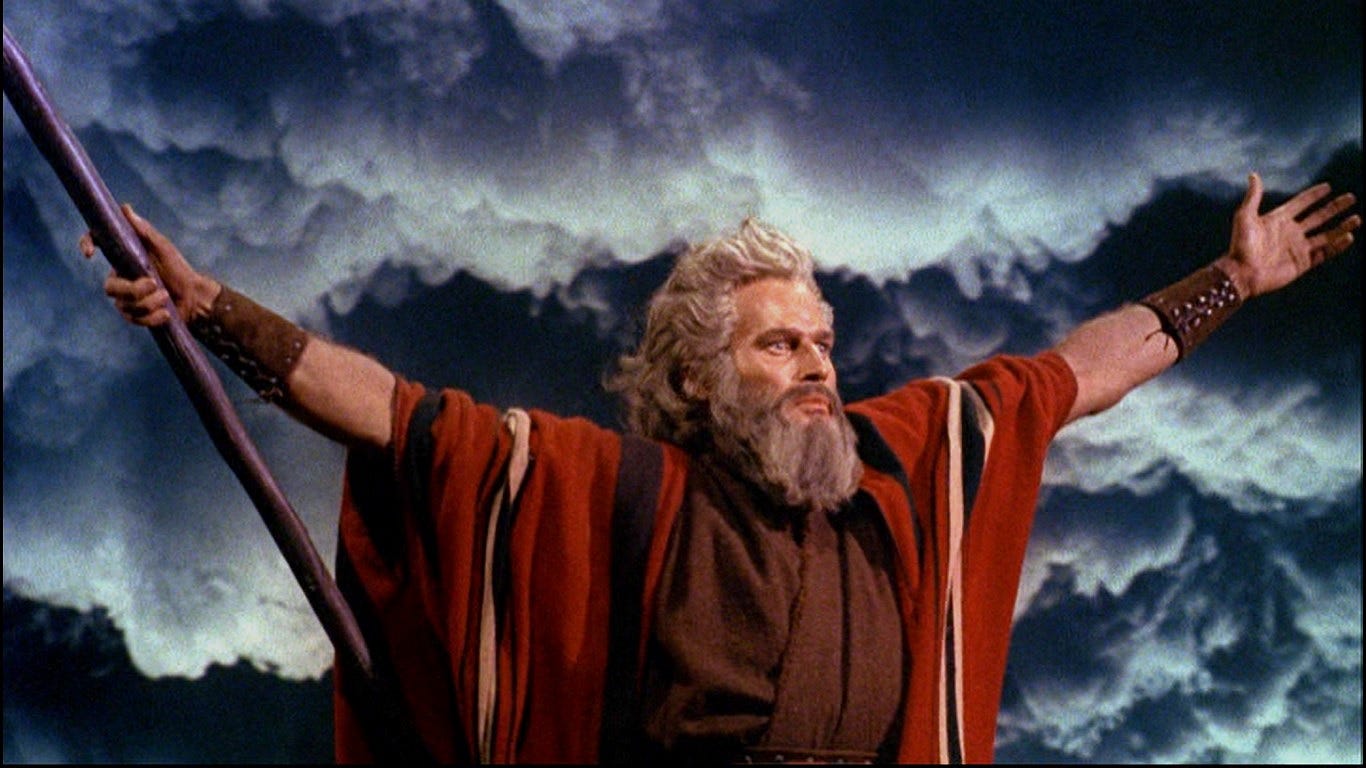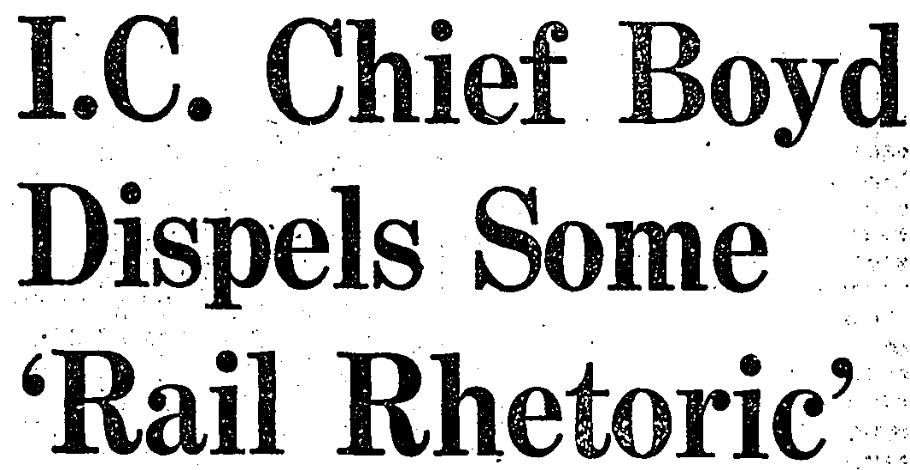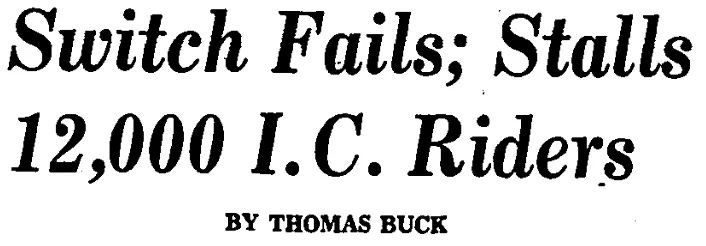THIS CRAZY DAY IN 1972: Mayor Daley, Ed Hanrahan and the wild finish of the 1972 primary
Weekly Compilation March 20-26, 1972
To access all contents, click HERE.
Why do we run this separate item peeking into newspapers from 1972? Because 1972 was part of the ancient times when everybody read a paper. Everybody, everybody, everybody. Even kids. So Steve Bertolucci, the 10-year-old hero of the novel serialized at this Substack, read the paper too—sometimes just to have something to do. These are some of the stories he read. If you’d like, keep up with the 1972 papers every day on Twitter, @RoselandChi1972.
March 20, 1972
Chicago Today: Jack Mabley Column
Jack answers reader questions today. FYR, Jack Mabley was the top Chicago columnist until he left the Daily News for Chicago’s American, opening up a slot at his old paper for a young comer named Mike Royko.
Two letters stand out.
Letter #1: “No one can get it thru to you that the Black Panthers are a bunch of commies who want to overthrow our government.
“You have a lot of guts to cry about the two Panthers that were killed. The commies come here making trouble. And the police take care of it. You know, you give yourself away, what you are, by talking so much about Black Panthers. State’s Atty. Hanrahan did what had to be done.”
“COMMENT: What doesn’t get thru to you is that in commie countries when somebody opposes the government, secret police come in the night and shoot them in their beds.
“What makes this nation attractive is what we call due process of law. I don’t think the Panthers are commies. The Panthers sneer at Communists as too conservative.”
Letter #2 gives you an intimate look at everyday life in 1972:
“We had a repairman look at our TV. When I called, the office said the service charge would be $12.50. [NOTE: $85 in 2022] We thought that was a pretty fair price. We knew what was wrong and it would be $12.50 plus parts, about $2.50 [$17]. Guess what he charged us! $28! [$189] He charged $13 [$88] to take out the chassis to put in the $2.50 part. Let’s cry.” --Mrs. J. McGhee, Melrose Park
“COMMENT: Certainly misunderstandings and bad feeling would be minimized if the companies would warn that the $13 charge was lurking if the chassis had to come out. But keeping a man, a truck and parts and tools on the street is expensive. If they made a lot on the deal I think more servicemen would be available.
“I finally broke down and bought a color set, but it was portable, like b&ws I’ve bought, so I can carry it in for service.”
So: The top columnist at a major big-city newspaper only just decided he could afford a color TV—a small portable one.
March 20, 1972
Chicago Today: Why are you griping about Allen?
By John Hillyer
Staff writer
Hillyer writes from Sarasota, where the Sox have been in spring training for some weeks now--minus their new star player, Dick Allen, who hasn’t signed his contract yet despite the offer of a then-almost unheard of $120,000.
“Bleeding hearts, you who predict catastrophe for the White Sox because of their tolerance of the whims of Richard Anthony Allen, you are finally getting to me,” writes Hillyer. “So Allen is a spoiled brat. So he laughs at the established rules and makes up his own. So he likes to take a drink now and then. So he frequents the race tracks.
“So what?”
Hillyer notes that a rookie might get fined for what Allen is doing--but the rookie has signed a contract. “At last report, Allen hadn’t. When he does, we’ll see what his set of rules are.”
More importantly, though, Allen isn’t a rookie. “He may, on the contrary, be the finest offensive weapon this club has had since Joe Jackson performed on the South Side more than a half-century ago.”
If Allen has just an AVERAGE year for himself, Hillyer notes, he WILL be Joe Jackson--with Jackson’s stats basically, and 25 runs.
Anyway, what’s spring training for? Preparing for the season. “Allen needs a week. Why should he take longer?”
“Why has Allen been traded so often? Because he played for men who went by ‘the book,’ traditional managers who feel that if not every player conforms to the same set of rules, the manager somehow loses face. But Chuck Tanner is not that sort of manager. He doesn’t need such superficialities in order to assert his authority.
“Tanner simply treats his players like individuals, thus earning their respect. And he’s pragmatic. He cracks down--and hard--only when he feels a player is undermining the success of the club. So far, Allen is not guilty.”
“Chuck isn’t complaining, the other players aren’t complaining, and once Allen starts thrashing 40 ounces of lumber around Comiskey Park, neither will the fans be complaining.
“Why, for heaven’s sake, should you be?”
THANK YOU, NEW SUBSCRIBERS! I’ll be emailing the winners of the Reader’s Contest this weekend. A Jays Potato Chips Pencil, or something even better, may be in your future.
March 20, 1972
Sun-Times and Daily News: primary choices
Both papers print complete ballots of their choices in the hotly contested 1972 primary that everybody says is a crucial test of Mayor Daley's power.
Who will it be for Cook County State’s Attorney? Mayor Daley's candidate, Ray Berg, or indicted incumbent Ed Hanrahan--who Daley dumped from the Democratic slate? (Sadly, we all know independent Donald Page Moore does not have a prayer.)
What about governor? Will it be Mayor Daley’s candidate, Paul Simon (though Mike Royko says Daley dislikes Simon), or upstart independent Dan Walker, who Daley REALLY hates?
Unfortunately, I missed Chicago Today’s endorsements. However, all five dailies endorsed Paul Simon for the Democratic nomination for governor. The Tribune and the Defender didn’t print a ballot, but the Tribune endorsed Ray Berg, and the Defender endorsed either Berg or Donald Page Moore.
The Defender:
“We believe that both RAYMOND K. BERG and DONALD PAGE MOORE are fully qualified to take the State’s Attorney office out of the disarray and irresponsible behavior associated with it under the HANRAHAN regime. It goes without saying that HANRAHAN’S lack of emotional stability together with his misplaced sense of justice have created an aura of ill repute that calls for a thorough overhauling of the State’s Attorney’s office.”
The Daily News:
The Sun-Times:
Don’t miss the latest chapter! In which Steve’s Nonna, a Gately’s doughnut and a Roseland All-Stars Little League hat combine to teach young Steve the heartbreaking truth—that you can’t have everything.
March 20, 1972
Chicago Daily News: Daley jabs at Hanrahan
Mayor Daley engages in some political trash-talking as the game clock winds down on the 1972 primary campaign. Indicted State’s Attorney Ed Hanrahan holds a dueling press conference.
Mayor Daley met with reporters in his fifth floor office and predicted Hanrahan “would not carry a single Chicago ward Tuesday in the three-way Democratic primary race”.
Simultaneously, Hanrahan was telling his own group of reporters that “Daley had privately told him that the mayor was ‘very disappointed’ when Democratic slatemakers dumped Hanrahan from the regular organization ticket in favor of Raymond K. Berg”--that it was in fact “one of his two greatest political disappointments.” The other one? That Berg didn’t participate in any of the State’s Attorney candidate debates during the primary. Again, this is per Hanrahan.
“Hanrahan, full of confidence and good humor, predicted a ‘decisive’ victory over Berg--whom he dubbed ‘the reluctant pussycat’--and said he would sweep to the nomination ‘on a massive turnout for me.’”
March 20, 1972
Chicago Sun-Times: full page Vantage cigarette ad
If you’re at least Gen X, you remember wallowing in cigarette ads. Smoking, smoking, smoking was everywhere. Here’s a full-page Vantage cigarette ad from the Sun-Times. Full-page cigarette ads were common, of course. I picked this one because it’s different. Instead of pictures of young attractive couples having a good time, or a rugged cowboy, with as little reference as possible to the cigarette itself, Vantage wants to talk about the elephant in the room.
“A lot of people have been telling you not to smoke,” says Vantage, before trotting out a clever rhetorical trick: They pretend that people aren’t telling you not to smoke; instead, people are telling you not to smoke, “especially cigarettes with high ‘tar’ and nicotine.”
Then Vantage states something indisputably true: “But smoking provides you with a pleasure you don’t want to give up.”
Followed by a provocative question: "And what are they going to do about that?"
“They can continue to exhort you not to smoke,” Vantage declares. “Or they might look reality in the face and recommend that, if you smoke and want low ‘tar’ and nicotine in a cigarette, you smoke a cigarette like Vantage.”
Now there is some powerful rationalization.
March 20, 1972
Chicago Daily News: Berg entertains supporters with a bit of song and dance
By Edmund J. Rooney
Moore takes prosecutor race to Mayor Daley’s home turf
Sun-Times: Hanrahan seeking to take over party: Berg
By Joseph Reilly
Per the Daily News, Mayor Daley’s candidate for State’s Attorney, former presiding Traffic Court Judge Raymond Berg, led a neighborhood parade on Sunday from 79th and Western to 8045 S. Francisco, home of undertaker Andy McGann. Then 400 people crowded into the bungalow for a party. In the backyard, Berg did an Irish jig and sang the old Irish tune “The West’s Awake.”
Berg also gave pep talks to some ward meetings for Mayor Daley’s precinct captains. The Sun-Times had the most complete version of Berg’s speeches:
“Speaking to precinct captains in the Far West Side 37th Ward, Berg said: ‘I know there’s some sentiment out here for Eddie (Hanrahan). Maybe some of you have some sentiment for him. But there’s no room for sentiment in this election.’ He added, ‘If you think if Hanrahan wins he’s going to shake hands and make up with Daley, you’re crazy. He’s out to take over this organization.’”
To County Assessor P.J. (Parky) Cullerton’s 38th Ward precinct captains, Berg said, “We are not just fighting for Ray Berg. We are fighting for P.J., for Mayor Daley and for the party….I’d like every one of you to be able to shake hands with Parky that (election) night and say, ‘We did it for you’ and to shake hands with Daley and say ‘We did it for you.’”
Mike Royko will mock that speech in his Daily News column later today. See this week’s Mike Royko 50 Years Ago Today for Mike’s take.
Meanwhile, independent Democrat Donald Page Moore cheekily campaigned in Bridgeport.
“‘Hi! I’m Don Moore and I’m running against Hanrahan tomorrow for state’s attorney,’ the candidate told startled shoppers and businessmen in the 3400 and 3500 block of S. Halsted St. less than three blocks from Daley’s home at 3536 S. Lowe.”
… “Several men grumpily ignored Moore’s hand and the campaign literature carried by his aides. A reporter asked Moore why he never mentioned he was also running against ex-judge Raymond K. Berg. ‘Aw, they never heard of Berg around here,’ Moore replied.”
“Moore expects to have an impressive 6,500 workers in the precincts Tuesday, but the Democratic Party has 30,000 patronage workers to do its bidding every election day.”
March 20, 1972
Chicago Sun-Times: Moore charges 29th Ward vote plot
Independent Democratic candidate for state’s attorney Donald Page Moore held a press conference to charge that the 29th Ward regular Democratic organization was illegally scheming to get votes—and to re-elect indicted Ward Committeeman Bernie Neistein, even though he is finally so tainted that Mayor Daley’s slating committee didn’t endorse him for committeeman, or for re-election to his state Senate seat.
Democratic precinct captains each received hundreds of little cards that read: “To the Judges of Election, I am a Democratic voter and am unfamiliar with the operation of the Voting Machine and would like help from the Judges to Vote the following numbers: 3A-5A-8A-15A-17A-17B-29A-31A and Write in Neistein.”
Bernie Neistein has lived for years at 1040 N. Lake Shore Drive instead of his poverty-stricken West Side ward, and he’s now under indictment for violating state ethics laws—but not for not living in his ward. Instead, it’s for not declaring ownership of stock in one of the racetracks involved in the Paul Powell racetrack stock scandal. The stock was in Neistein’s wife’s name.
Former Illinois Governor (and current federal judge) Otto Kerner and four co-defendants are about to go on trial over that shady racetrack stock. The charge, basically, is that they schemed together to promote the creation of two new racing entities, Washington Park Trotters and Chicago Harness Racing, then buy some of the newly issued stock for them at rock bottom prices for themselves and certain members of the Illinois legislature and other favored politicians.
Donald Page Moore charges that the Neistein cards are illegal campaign literature, because they don’t show the name and address of the sponsoring organization. Moore also charges that 500 Republican poll judges were bounced from working this primary, so “bogus GOP judges can now allow this kind of fraud.”
WHAT WOULD DONALD PAGE MOORE’S CAMPAIGN MANAGER SAY TODAY ABOUT THAT WILD 1972 PRIMARY?
Find out in this week’s Mike Royko 50 Years Ago Today! In the Weekend Edition.
March 20, 1972
Chicago Sun-Times: Tom Fitzpatrick column
Sir Eddie aces his screen test
Tom Fitzpatrick says he finally understands where indicted State’s Attorney Ed Hanrahan is going with his primary campaign, which has included releasing two white doves from a trick top hat during the St. Patrick’s Day parade, and planting gag fortunes reading “Hanrahan is the man” in fortune cookies at a lunch for Mayor Daley’s precinct captains. Mayor Daley dumped Hanrahan from the Democratic ticket and is endorsing one of Hanrahan’s two opponents, former Traffic Court Judge Ray Berg.
Fitzpatrick figures Hanrahan plans on going into show business, and he was using TV news cameras for a screen test at a Sunday press conference just before the primary election day.
"Hanrahan arrived for his screen test in a freshly pressed blue suit with his hair combed neatly. He paused slightly at the door before entering, making sure the television lights were turned on. They were. Seeing this, Hanrahan wiped the smile off his face. He suddenly grew stern, grim-visaged. He walked to his desk and picked up a copy of The Sun-Times….that contained a story critical of his office.
“’This is a rotten, lousy paper,’ Hanrahan said, his mock anger mounting, sparks beginning to show in his eyes.”
Hanrahan went on for a great while, “sounding just a little like Edward G. Robinson.” Fitz says Hanrahan is an entertaining actor.
“His final words contained a warning. ‘I have news for them,’ he said, speaking of The Sun-Times. ‘They are going to have to live with Edward Hanrahan for a long time. I’ll be around. And truth crushed to the ground shall rise again.’”
Then he refused to answer questions about the election because he said the press conference wasn’t political. Instead, Hanrahan left, then came back ten minutes later. “His mask was off. He laughed and joked with two Sun-Times reporters.”
When a TV reporter asked if he could get in a question, Hanrahan answered, “Lay on, MacDuff.”
“Can you imagine that?” asks Fitz. “Those are the very lines Macbeth speaks in the last act of the Roman Polanski version of the Shakespeare play. Seconds later, MacDuff lops off Macbeth’s head with a sword.”
NOTE: Polanski’s Macbeth is currently playing downtown. Roger Ebert will review it, but not until April 3.
March 20, 1972
Chicago Daily News: Norman Mark TV column
Sears Tower TV ghosts will be hard to dismiss
Norman Mark wrote a long article in the Sunday Panorama section (covered in TCD’s weekly compilation under March 18-19) on the fact that the now-under-construction Sears Tower will probably ruin a lot of Chicago’s TV reception. Today he sums up and goes a bit further.
Sears says it has fixed the possibility of ruining TV reception. “A combination of a ceramic material (Avram) to absorb TV signals and metal tabs inserted in the windows, or ‘towel bars,’ metal bars inside the windows, should bring interference within ‘generally considered acceptable levels’”.
Yesterday, Mark pointed out this “acceptable level” would mean several layered versions of the TV picture— “ghosts” — which might not be distracting if nobody moves too much onscreen.
Broadcasters aren’t convinced and want Sears to reduce the height of Sears Tower by 250 feet--which it refuses to do. “Besides asking Sears to take the Tower down 250 feet, broadcasters have explored moving their antennas to the Tower.” Most are currently at the John Hancock.
“If this is to be done, Sears must begin reinforcing its building within a very few weeks, for as now planned, the building could not take the added stress of antenna towers.”
“But reinforced a building costs lots of money and the broadcasters say Sears won’t do it unless the company is virtually guaranteed the TV stations will actually move to the tower. The TV stations don’t want to say they’ll move until all other possibilities are explored. Meanwhile the building is 43 stories tall and growing.
“The Sears Tower goes to the Federal Aviation Authority’s local limits. If antennas are to be put atop the building, the FAA would have to raise its own limits.”
As well all know, Sears Tower is going to add those antennas, in white.
March 22, 1972
Chicago Today, 5-Star Final:
March 22, 1972
Chicago Today, 7-Star Final: Dan, Ed Show stuns Daley! Pair put brakes on The Machine
March 22, 1972
Chicago Daily Defender: It’s Hanrahan!
“Chicago’s powerful Democratic machine apparently missed the boat last night in two of the state’s most important races, that of governor and state’s attorney.
…. “Although the majority of results from predominantly black precincts had not been tabulated, incomplete results showed Hanrahan leading with 44 per cent of the vote in the city, and 60 per. cent of the suburban totals.
…. “The polls indicated that Berg received 33 per cent of the vote, and Donald Page Moore, who was endorsed by the Rev. Jesse Jackson of Operation PUSH, 21 per cent of the vote.
“A Democratic regular offered this possibility: ‘If he (Hanrahan) wins, he’ll probably begin indicting the ward committeemen who didn’t support him.’ The party regular also said the list of committeemen who ignored Hanrahan’s bid for re-election is a ‘very, very long one, indeed.’”
…. “While many feel—if Hanrahan is indeed declared the winner—he will systematically begin to ‘dismantle’ Chicago’s powerful Democratic machine, others predict that he and Daley will make amends and Hanrahan will thus regain the ‘fair headed boy’ status he enjoyed before he was dumped by the party.”
Did you miss the whole chapter on Chicago Newspapers Circa 1972?
March 22, 1972
Chicago Tribune: Clarence Peterson TV column
Television Race for Vote Exclusives
Channel 2’s local news is in distant third place to Channel 7 and Channel 5, as we’ve noted while covering Channel 2’s nutty advertising campaign for their new anchorman, Bob McBride.
Channel 7, which created the “happy talk” format with its anchors led by Fahey Flynn and Joel Daly, is firmly and perhaps smugly in first place.
Channel 5 news with serious Floyd Kalber comes in second. See THIS CRAZY DAY IN 1972 here, under Feb. 16 and Feb. 17, for a look at the advertising competition between the stations.
But today Clarence Peterson reports that the popular TV show “Marcus Welby, M.D.” ruined Channel 7’s news ratings on primary election night, because “Marcus Welby” runs 9-10 PM. Channel 2 and Channel 5, in contrast, finished their network shows at 9:30 and went straight into special election night newscasts. We’ll let Peterson explain the significance:
“[T]he kindly doctor looked after the emotional problems of an adopted child as Edward V. Hanrahan’s upset victory became apparent to viewers of WBBM-TV [Channel 2] and WMAQ-TV [Channel 5].”
Peterson doesn’t give us the numbers, but his message is that many viewers stuck with Channel 5 and Channel 2 into the normal 10 PM local newscasts.
Plus, “Channel 2 had an exclusive. State’s Atty. Hanrahan was in the studio for about half of the 30-minute program, answering the questions of Bob McBride, anchorman, and Joe Mathewson, political editor.”
In fact, Mike Royko reported his March 22 column from Ed Hanrahan’s campaign headquarters and its burgeoning victory party. As Mike was talking to Hanrahan in his office about his apparent win, Hanrahan’s campaign manager came in to tell Hanrahan to get over to CBS.
See this week’s compilation of Mike Royko 50 Years Ago Today for coverage of Mike’s election night column. See here under October 26 for Mike’s first coverage of Channel 2’s ad campaign for Bob McBride, and here under November 11 for Channel’s 2 response to Mike’s mockery.
March 22, 1972
Chicago Daily News: Daley’s footwork turns defeats into a victory
by Robert W. Billings
Meanwhile, Robert Billings reports the real Mayor Daley knew exactly what to say to reporters after taking the biggest trouncing of his career. You’d never know Mike Royko and a host of others regularly make fun of Mayor Daley’s inability to speak well.
This is a bravura work of political writing too, so I will quote Billings at length.
“That might have been crow he was eating, but to hear him tell it it sure tasted like capon.”
“Call it resiliency. Call it brass, or call it courage, as he does, but Richard J. Daley, mayor of Chicago and chairman of the Cook County Democratic Central Committee, turned bitter, seemingly unreconcilable defeat into yet another glittering victory.
“Edward V. Hanrahan had just delivered a karate chop and Daniel Walker kneed him, but Daley just wiped away the blood and delivered a one-two of his own: he endorsed them both.”
“The people have spoken in a democratic election with the greatest emphasis on democracy with a small ‘d,’” Daley told the reporters.
Billings reports that Daley called Hanrahan to congratulate and endorse him.
Get that, he called Hanrahan. That’s a touch of class.
“He said, ‘Thank you for calling,’” the mayor reported.
He quipped his way around the defeat of his blue-ribbon candidate, Raymond K. Berg.
“He lost because he didn’t get enough votes.”
“Why didn’t he get enough votes?” one of the hundreds or so gathered reporters asked him.
“Because of what happened,” he responded.
Daley went on to say the majority rules, and you don't walk away from the free choice of the majority. “‘I do not walk away,’ the mayor quipped, in an adroit play on words. ‘I don’t take any walks.’” (Dan Walker, you may recall, walked the length of the state during his campaign.)
It’s just like sports, said Daley. Win some, lose some: “You win with humility and you lose with courage.”
“It was a solo performance all the way,” writes Billings. “The hurrahs were gone from party headquarters long before the mayor stepped out under the bright lights.
“He came out as he has on so many election nights in the past when his ticket has steamrollered in. The difference is that on the big nights the mayor is surrounded by his beaming hosts.
“The powerhouse ward committeemen bring in their tallies and take their bows at headquarters….They puff their cigars and loiter in the outer offices and reception rooms talking about the will of the people and the strength of the ticket.”
“But last night, the mayor stood alone turning defeat into victory. Most of the chiefs were absent. Very few made their way to the second floor of the Sherman House. Some telephoned, but most stayed away in body and spirit.
“The mayor, his sons, Richard, Michael, and William, and his oldest lieutenant, Circuit Court Clerk Matt Danaher, were his only supporting troops.
“He didn't need anyone else. The people had spoken in a democratic election. That’s with a small ‘d,’ he said, but it was also Daley with a very large ‘D.’”
March 23, 1972
Chicago Daily Defender: Good Morning, Sports!
Rich’s Walk
by A.S. Doc Young
Doc Young has many thoughts on his friend Dick Allen in today’s column, some difficult to read and therefore difficult, I'm sure, to write.
“By the time you read this, Rich Allen may possibly have signed a 1972 contract with the Chicago White Sox. Or, possibly, he will have been traded. Or, also possibly, he will have quit Major League Baseball for a full-time career with his horses.
“But, I hope not. I hope he and the Chicago White Sox have gotten together, amicably. Because, Rich Allen needs a home in the game.
…. “The White Sox are his fourth team in four years, and that says a lot. It says, most eloquently, that Rich Allen has problems. Some of those problems were created by others, whites mostly. Some of those problems Rich created for himself.
“I like to believe that I am Rich Allen’s friend. I want to see him do well. I know that he can be one of the all-time greats. During the next six or seven years, he can make a million dollars playing baseball. He can, during that period, qualify for the Hall of Fame.
“But I am also convinced that Rich Allen is a man who anticipates trouble. And, anticipating it he always finds it.”
Young writes that when Allen went to the LA Dodgers, he told Allen that everybody there wanted to see him do well. “But I failed to convince Rich of this fact. He had had teenage problems with the Philadelphia organization in the South. The Philadelphia fans had turned on him after he had a brief ‘fight’ with a white player named Frank Thomas. Philadelphia got to be unbearable to and for him.”
…. “But the fact is, he could have lasted until career’s end with the Dodgers—if he had accepted my statement as fact, if he hadn’t anticipated that something would go wrong and, therefore, ‘played it too close to the vest.’ If Rich wants to call me and dispute what I say, he knows I’m available. He has my number.
“I was surprised and saddened when the Dodgers dealt him off. But I could understand it. I can understand why Rich went to the White Sox’s training camp in Florida and walked out. But I really can’t say he was right.”
March 23, 1972
Chicago Today: Up! Up! Up!
It's funny sometimes how it's possible to forget whether I'm reading 1972 papers or 2022 papers, and this is a good example. You wanna talk inflation? Try 1972 inflation on for size! Let’s remember the economy is bad enough for a Republican president to put wage and price controls in place.
“The jump in food prices in February was the greatest one-month increase in 14 years across the nation, and in almost 7 years in the Chicago area. A 2.5% per cent increase in food prices here pushed the cost of living index to a new high of 123.0, which means that today $12.30 is required to buy what $10 bought in 1967.”
…."All of the increases, locally and nationwide, both for food and in the over all index, were the greatest since President Nixon imposed price and wage controls last Aug. 15, the government admitted.”
The regional director for the Bureau of Labor Statistics blames the increase in cost-of-living on rising prices. “Particularly sharp increases were recorded for pork chops, bacon, hamburger, round teak and pork sausage.” he said.
The Daily News will report later in the week that supermarket chains raised prices despite the controls in place, and the government may investigate.
March 23, 1972
Chicago Today: Senators toast libbers’ victory
The United States Senate, after “decades of reluctance and indecision,” approved the Equal Rights Amendment.
This is not front page news today. Chicago Today plays it middle-of-the-page, page 14. The Tribune puts it on page 7. The Defender didn’t cover it at all. I didn’t get the Sun-Times for March 23, but I’ll go out on a limb and guess they didn’t put on the front page either.
The 84-8 vote “brought shouts of joy and a spirited champagne party by supporters. But Sen. Sam Ervin (D., N.C.), who lost 10 attempts to modify the amendment, said ‘You are crucifying women on a cross of equality…Forgive them, Father, they know not what they do.’”
“Ervin, who doggedly led a small band of senators against the amendment in four days of debate, contended it will mean legal chaos. He argued that laws discriminating against women should be changed at the state level, not by constitutional amendment. Proponents of the amendment said that would be too slow, and that even federal guarantees for working women are riddled with loopholes and slow in the enforcement.”
The Hawaii became the first state to ratify the ERA when its legislature voted unanimously to pass the amendment—within an hour of the Senate’s vote.
The Daily News account noted that Sen. Birch Bayh (D-Ind.) “led the fight for the amendment in the senate” and “said there would be a ‘scramble’ by the states to ratify the amendment. He predicted final ratification would come ‘with dispatch…in a year or two.’”
This is the ERA button that Steve’s friend Amy always wore:
March 24, 1972
Chicago Today: Bruce Vilanch’s TV Report
And now—a Daley-Daly Show
“Hot on the heels of the news that Carl Stokes is to become NBC’s new anchorman in New York came yesterday’s startling announcement that Richard J. Daley has resigned following Tuesday’s primary to take over the Channel 7 news show from Fahey Flynn,” writes Bruce.
Carl Stokes was Cleveland’s first Black mayor, 1967-1971.
While Fahey Flynn was arguably the top dog at Channel 7, his equally prominent co-anchor was Joel Daley.
Channel 7, as we’ve noted, is number one in the local news ratings, and invented the “happy talk” format. Channel 7 also calls itself “Eyewitness News,” and sometimes “Flynn Daly News”. Bruce continues:
“The Daley-Daly Secret Witness News will air next week, nightly at 6 and 10. p.m. The old ‘happy talk’ format so beloved by ABC newscasters everywhere will be revamped slightly for the new anchorman. The show’s thrust, according to station sources, will be ‘wonnerful talk.’”
As Mike Royko fans know, Mayor Daley favors the term “wonderful” which he pronounces “wunnerful”—the spelling favored by Royko.
“Everyone at ABC is ecstatic about the Daley move. The station’s first official reaction, after leaking the story to the Chicago Seed and other publications, was to hire Len O’Connor’s makeup man and Sig Sakowicz’ cue card writer. Other changes are expected shortly.”
Chicago Seed: Late ‘60s/early ‘70s radical underground newspaper. Len O’Connor: Veteran Chicago reporter turned Channel 5 political commentator who looks a lot like Mayor Daley—old, white, receding hair, jowly.
Sig Sakowicz: A very Polish, very Catholic Northwestsider who went from working in his family’s tavern to hosting a Saturday night show on WGN radio, Sig’s Show, interviewing celebrities. His 2004 Las Vegas Sun obituary says his WGN stint started in 1954. He had just left WGN and moved to Las Vegas in 1972, though he would return in 1985.
“Among the new features of the Daley-Daly news will be a children’s segment entitled ‘Dick and Joel.’ This will highlight political news of the day in words of two syllables or less. It is expected that this will be quite a lengthy segment, so John Coleman’s nightly weather report has regretfully been eliminated.”
March 24, 1972
Chicago Today: Movie listing for “The Ten Commandments”
Cecil B. DeMille’s blockbuster 1956 film has been re-released and it’s a big, big deal. Not for a single night, for a week. It’s a real release, as if it’s a new movie. In fact, Gene Siskel won’t review it in the Tribune until April 9, so watch for that.
Steve’s Nonna took him downtown on the bus to see it. Like any Catholic kid, Steve had seen “The Ten Commandments” and “Ben-Hur” once a year on TV for his entire life, as far he knows. Sometimes he still found it hard to tell the two movies apart. But the parting of the Red Sea was definitely more impressive in color in the gigantic Roosevelt theater than on the Bertolucci’s small black-and-white TV in their front room.
March 26, 1972
Chicago Today: Women get Burt; the men get nervous
by Mary Knoblauch
Film Critic
The most exciting thing around the Chicago Today offices?
“It was the appearance of the first contraband copy of the Cosmopolitan Burt Reynolds centerfold,” writes Mary Knoblauch. “Face it, men, after a decade of Playboy, you’re about as liberated as Queen Victoria.”
“Half the men in our office wouldn’t even look at the picture. They reacted just like many women did when Playboy first came out. In those days many women questioned the morals of a girl who would pose in the almost altogether….
“Now it is the men, who grumble and speculate disparagingly on Burt Reynolds’ sexual tendencies.”
…. “For years women have worried. about competing with Playboy’s centerfold. They saw their husbands and boyfriends clipping the gatefolds and pasting them up. And since Playboy is a bust-oriented magazine, with a bow or two to derriere devotees, women started to get anxious. Were their men saying the equipment at hand didn’t shape up?…And now the shoe is on the other foot.”
“One woman called Roy Leonard on WGN to report that her husband had forbidden her to buy the April Cosmo, even tho he read Playboy regularly.”
March 26, 1972: The Mighty IC
Chicago Tribune
by Kenneth Ross
I’d love to know what’s up with the strange Tribune coverage of the IC. It’s like they have one editor who’s married to the IC president’s daughter, and when it’s his shift, the IC can do no wrong.
The commuter train has racked up a pathetic record lately. Besides 18 serious delays in the last four months of 1971, here are just two headlines from the five major mishaps reported so far in 1972:
The IC is so bad, Chicago Today marketing columnist George Lazarus wrote an op-ed column voicing a common suspicion—that the IC is purposely doing a lousy job to get the Illinois Commerce Commission (ICC) to approve a requested 7% rate hike.
The Tribune is definitely covering IC problems. In fact, the Tribune covers more IC delays than the Daily News. Chicago Today is owned by the Trib, and ran the blistering Lazarus column. So we can’t say the Tribune is letting the IC completely off the hook.
But when Tribune reporter Thomas Buck interviewed nine IC executives last month, he covered the IC debacle like a paid spin doctor. Buck let the executives remain anonymous, without even mentioning it. And he left the most damning admission for the end of the lengthy article:
The executives blamed the constant IC breakdowns on their fleet of nearly 50-year-old cars, which are slowly being replaced with new double-decker cars. Then the executives admitted that when the new cars were ordered four years ago, they purposely stopped making thorough repairs on the old cars.
Reporter Buck merely compared the IC executives to anybody with an old car who “who realizes he cannot afford to buy a new auto for another year or two.” The next day, the Tribune ran a sympathetic editorial clapping the IC executives on the back for admitting their railroad sucked.
Which brings us to today’s strange, incredibly long interview with I.C. president Alan S. Boyd. Boyd “contends that thruout the accumulation of the industry’s poor image, ‘we haven’t spent enough time talking about what we’re doing to help ourselves.’”
“Boyd, who came to the Illinois Central as president nearly three years ago after serving as the country’s first secretary of transportation, reflected on a number of topics concerning the industry in a recent interview.”
It’s a bizarre mish-mash of sometimes unrelated bullet points like this one:
“There are some rays of sunshine peeping over the horizon as far as the railroad industry is concerned, even tho they might get lost in the clouds.”
Let’s just leave it there.
March 25-26, 1972
Chicago Daily News: Lu Palmer column
Rebuilding cities for ‘little folks’
“A grandiose scheme called urban renewal swept over metropolitan areas in recent years. In far too many instances what was renewed was the establishmentarian’s faith in America as land of great bounty,” writes Palmer.
“Much land was cleared; middle and upper-income housing was constructed; contractors and wheelers-and-dealers struck it rich.
“But the people who lived in the renewed areas were removed and recycled into familiar miseries.”
The more recent Model Cities program is usually “neo-urban renewal,” and a new idea of building entire communities, Palmer figures, will leave out the little guy completely.
“Major victims of city planning are blacks, other minorities, and poor whites. For years, it was a standing joke for blacks who could still laugh that urban renewal really meant Negro removal.”
Palmer now writes about W. Victor Rouse, “only nine years away from the cheers of basketball fans of Loyola University where he was named an all-American in 1963.” Now 28 “and with degrees in political science and industrial relations,” Rouse has formed a firm, W.V. Rouse and Associates, to work in social planning. Rouse’s firm already works for several federal agencies and also Chicago’s Model Cities Program. Now, he’s become affiliated with the huge Barton-Aschman Associates in Chicago.
“Rouse intends to keep it relevant….There are pitifully few minority planners in the field. Vic Rouse is one. He needs a whole lot of company.”
Update: Victor Rouse died in 1999, just 56 years old. “Rouse was an honor student taking six courses during Loyola’s (1963) championship season,” Bill Jauss wrote in Rouse’s obituary.
More from Jauss’ obituary:
“W. Victor Rouse applied this same work ethic in his postcollegiate career as president of management consulting industrial relations firms that stressed development of programs for minority employees.
“Rouse earned a bachelor's degree, three master's degrees and one doctorate. At 28, he founded and ran his own company. He wrote articles on hiring and motivating socially and economically disadvantaged workers.
“Yet nothing Rouse did after he graduated from Loyola in 1964 matched the attention he received as the 6-foot-7-inch junior forward who made what the Tribune called "The Shot Heard 'Round the Basketball World" on March 23, 1963, in Louisville's Freedom Hall.”
Did you dig spending time in 1972? If you came to THIS CRAZY DAY IN 1972 from social media, you may not know it’s part of the novel being serialized here, one chapter per month: “Roseland, Chicago: 1972” —FREE. It’s the story of Steve Bertolucci, 10-year-old Roselander in 1972, and what becomes of him. Check it out here.
LikeCommentShare






